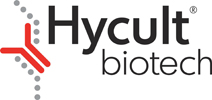
Hycult Biotech/SIGN-R1, Mouse, mAb ER-TR9/HM1080/200 µg
商品编号:
HM1080
品牌:
hycultbiotech
市场价:
¥7752.00
美元价:
4651.20
产品分类:
单克隆抗体
公司分类:
monoclonal_antibody
联系Q Q:
3392242852
电话号码:
4000-520-616
电子邮箱:
info@ebiomall.com
商品介绍
Description: SIGN-R1, Mouse, mAb ER-TR9
The monoclonal antibody ER-TR9 recognizes murine SIGN-related 1 (SIGN-R1). Mouse SIGN-R1,- a homolog of human DC-SIGN, is a 37 kDa type II transmembrane protein containing a single, C-terminal C-type lectin domain. SIGN-R1 is a specific marker for the identification of macrophage subpopulations present in the marginal zone of spleen (the so-called marginal zone macrophages (MZM)), in the lymph node medulla, and in the peritoneal cavity of some mouse strains. ER-TR9 does not react with macrophages in other regions of the spleen, such as CD169+ marginal metallophils and F4/80+ red pulp macrophages. In the spleen, the MZM function in trapping and clearance of blood-borne microbial antigens. SIGN-R1 mediates the uptake of encapsulated microbes , particularly through the recognition of microbial polysaccharides. Uptake of FITC-labeled dextran by macrophages can be blocked both in vivo and in vitro by the monoclonal antibody ER-TR9. Therefore, the monoclonal antibody ER-TR9 can be used to study the uptake of polysaccharides by macrophages.
Specifications:
| Catalog number | HM1080 |
|---|---|
| Product type | Monoclonal antibodies |
| Quantity | 200 µg |
| Formulation | 1 ml (200µg/ml) sterile culture medium with a low endotoxin level. |
| Application | Flow cytometry, Frozen sections, Functional studies |
| Application Notes | FC: Antibody ER-TR9 stains the extracellular domain of SIGN-R1. Peritoneal cells were pre-incubated with anti-CD16/32 to block Fc gamma before staining. As a negative control an isotype-matched antibody was used- (Ref.6) IHC-F:- Tissue sections were fixed in acetone and stained with antibody ER-TR9 using a two-step immunoperoxidase method (Ref.1). FS: Antibody ER-TR9- blocked the recognition of- zymosan and C. albicans by peritoneal macrophages. An isotype-matched antibody was used as a negative control. The polysaccharide mannan was used as a positive control. (Ref.4). |
| Use | For immunohistology and flow cytometry dilutions to be used depend on detection system applied. It is recommended that users test the reagent and determine their own optimal dilutions. The typical starting working dilution is 1:50. For blocking studies in vitro, dilutions have to be made according to the amounts of SIGN-R1 to be inactivated. |
| Immunogen | Mouse thymic stromal cells |
| Isotype | Rat IgM |
| Species | Mouse |
| Alias | CD209b, specific intracellular adhesion molecule-3 grabbing nonintegrin homolog-related 1 |
| Positive Control | Peritoneal macrophages of (Ref.4) |
| References | 1. Dijkstra, C, et al; Marginal zone macrophages identified by a monoclonal antibody: characterization of immune- and enzyme-histochemical properties and functional capacities. Immunology 1985, 55: 23 2. Kretschmer, K, et al; The selection of marginal zone B cells differs from that of B-1a cells. J Immunol 2003, 171: 6495 3. Kang, Y et al; The C-type lectin SIGN-R1 mediates uptake of the capsular polysaccharide of Streptococcus pneumoniae in the marginal zone of mouse spleen. PNAS 2004, 101: 215 4. Taylor, P et al; The role of SIGN-R1 and the beta-glucan receptor (dectin-1) in the nonopsonic recognition of yeast by specific macrophages. J Immunol 2004, 172: 1157 5. Nagaoka, K et al; Association of SIGNR1 with TLR4-MD-2 enhances signal transduction by recognition of LPS in gram-negative bacteria. Int Immunol 2005, 17: 827 6. Takagi, H et al. Cooperation of specific ICAM-3 grabbing nonintegrin-related 1 (SIGNR1) and complement receptor type 3 (CR3) in the uptake of oligomannose-coated liposomes by macrophages. Glycobiology 2009, 19:258 |
| Storage and stability | Product should be stored at 4 °C. Under recommended storage conditions, product is stable for one year. |
| Precautions | For research use only. Not for use in or on humans or animals or for diagnostics. It is the responsibility of the user to comply with all local/state and Federal rules in the use of this product. Hycult Biotech is not responsible for any patent infringements that might result with the use of or derivation of this product. |
| Disease | Infectious diseases |
品牌介绍
荷兰HyCult Biotechnology(HBT)位于荷兰乌登,从1994开始制造检测抗体和蛋白质,主要侧重与病理学诊断有关的全套产品研发,既有纯化的重组蛋白和多肽,也有单抗和多抗,是世界一流的先天免疫领域的研究试剂制造商。
联络我们



